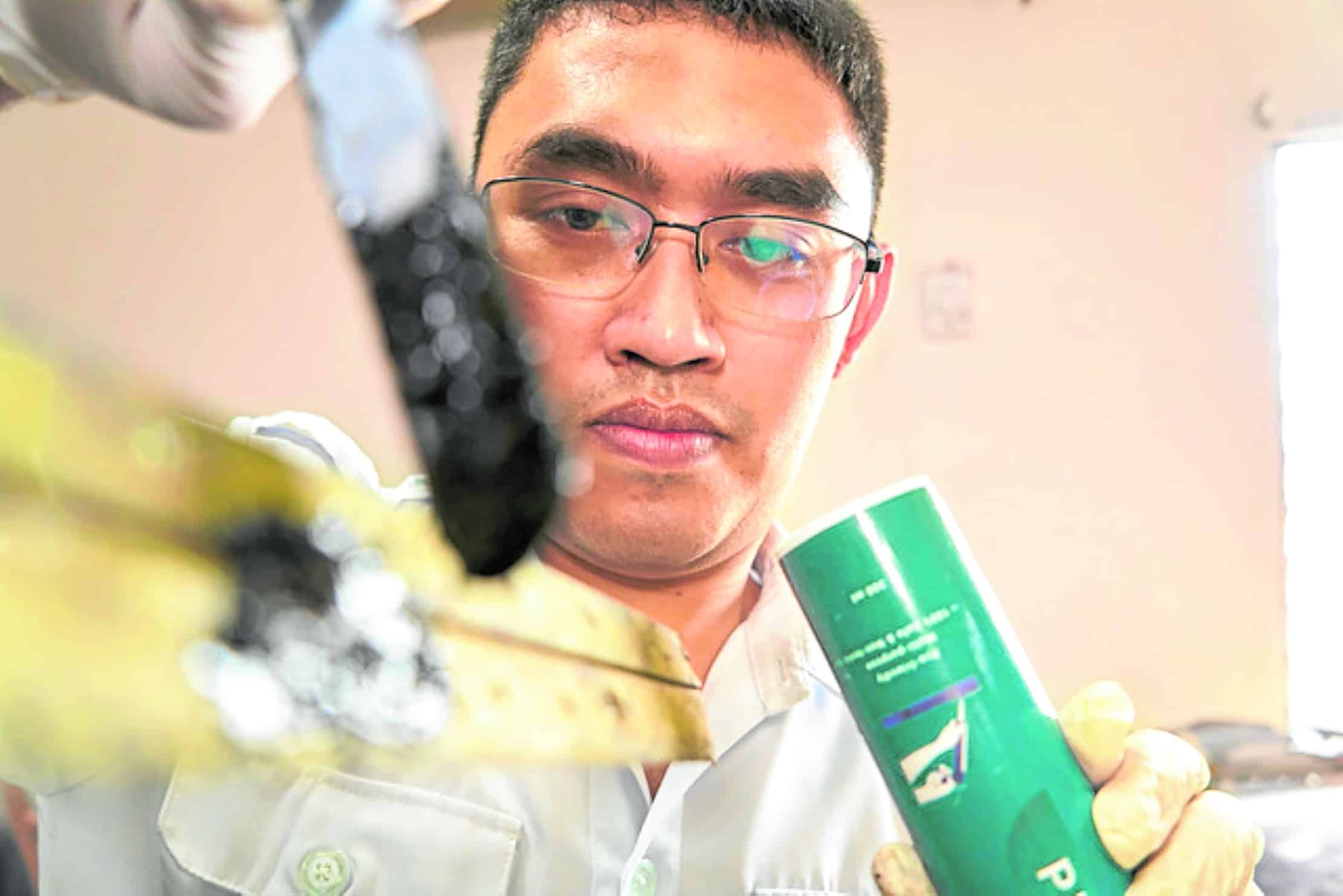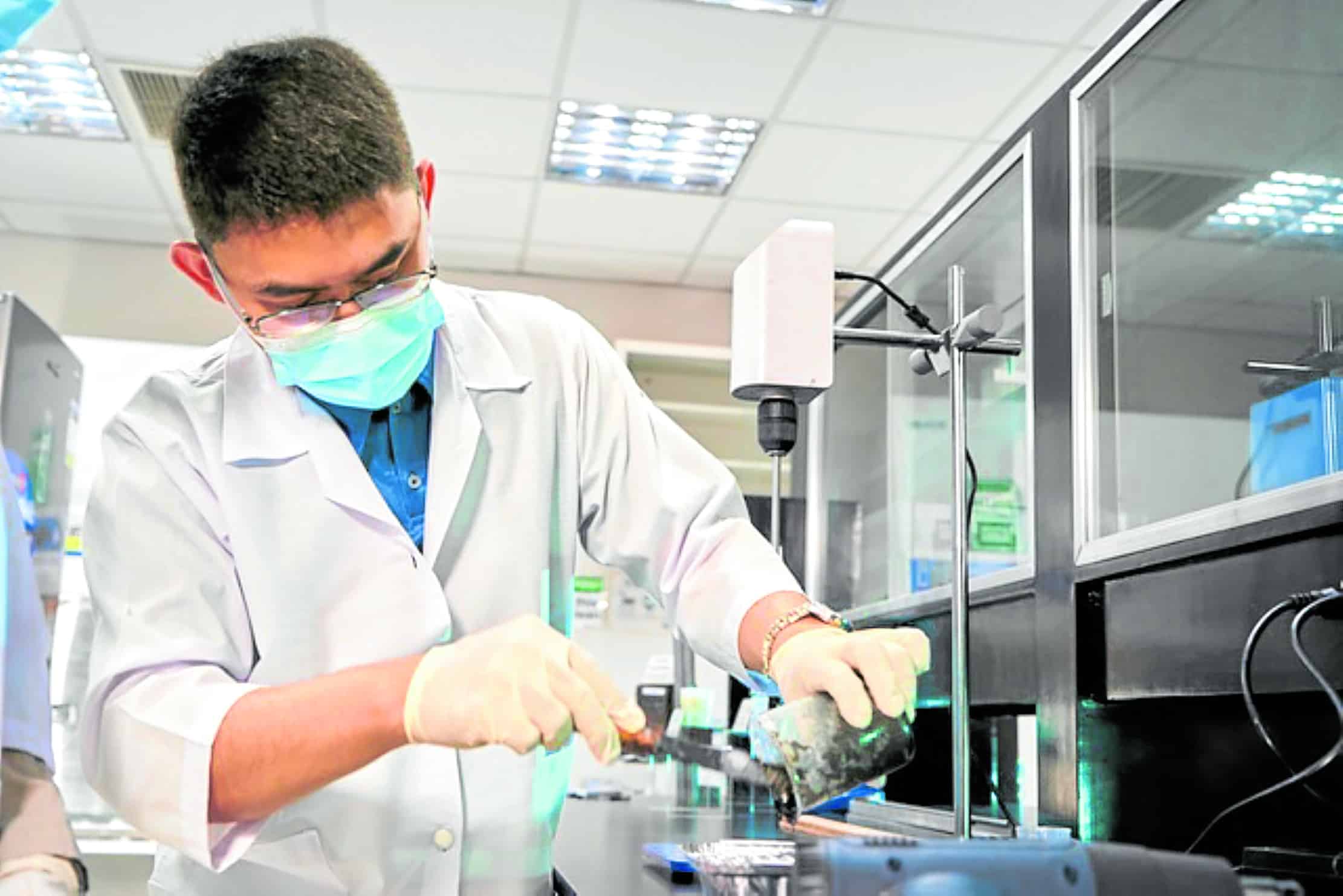

Mark Kennedy Bantugon —CONTRIBUTED PHOTOS
MANILA, Philippines — Mark Kennedy Bantugon, 26, didn’t reinvent the wheel—or on this case, aviation sealant and adhesive.
However to say he improved on it might be an understatement. Bantugon developed a totally new, higher industrial sealant that’s extra suited and conscious of a time when individuals are on the lookout for greener merchandise that won’t trigger hurt to each individuals and the atmosphere.
Pili Seal is natural, sustainable, robust and safer. It additionally smells higher than industrial merchandise at present available on the market. It makes use of a product that’s normally thrown away as waste or ignored.
The son of a trainer and farmer, the aeronautical engineering graduate had his eureka second whereas finishing his internship at Lufthansa Technik Philippines.
The all-chemical sealants and adhesives used to patch up planes posed well being hazards to individuals utilizing them. The polysulfide-based sealants that had been the trade normal for stopping gas leaks in plane for over 50 years might trigger pores and skin and respiratory irritation, and their disposal poses an environmental problem, particularly when heated or burned.
READ: What occurs in Vegas: Philippine tech on world stage


Bantugon makes use of pili as foremost ingredient for plane sealant
Fixing leaky roofs
The European Chemical substances Company has recognized substances generally present in adhesives and sealants as hazardous and wanted to be dealt with and disposed of rigorously.
However the chewing gum Bantugon used as a child to attempt to repair leaks and holes of their house in Batangas will likely be even much less efficient in holding collectively massive steel airplane items.
Because the son of a farmer, he knew about timber and their sticky resins. “I attempted completely different resins from timber that develop in tropical nations,” he says, utilizing them to repair leaky roofs.
He tried six completely different tree resins earlier than selecting pili as the primary ingredient of his sealant that has now gone into industrial manufacturing. “Pili resin stood out. It additionally smells good,” he says.
READ: James Dyson Award winner on his pili sealant invention: ‘A blessing and breakthrough’
Bantugon’s Pili Seal is a bio-based plane sealant and adhesive that’s safer for aviation individuals to deal with and is biodegradable. It’s a more healthy various to poisonous petrochemical-derived sealants and adhesives. It withstands gas publicity, warmth and strain, making it appropriate for plane gas tanks and different high-performance functions.
The invention might also be utilized in development, automotive, marine and protection industries, contributing to a round economic system by repurposing 155 million kilograms of agricultural pili tree resin waste generated yearly within the Philippines.
The Pili Seal is a reputation that Bantugo is especially pleased with. It doesn’t solely spotlight the primary ingredient of his product but additionally proclaims its nation of origin. It has not solely been granted a number of patents, however its Filipino inventor has additionally been included on the listing of the highest 10 innovators nominated for the Younger Inventors Prize 2025.


Bantugon, An Aeronautical Engineer, Fastened Leaky Roofs at House in Batangas.
Tomorrow Shapers
Contenders for the Younger Inventors Prize 2025, often known as Tomorrow Shapers, have been chosen from 450 candidates by an impartial jury. Winners will likely be introduced throughout ceremonies on June 18 in Iceland.
The Younger Inventors Prize celebrates the world’s innovators 30 and underneath who use know-how to handle world challenges posed by the United Nations (UN) Sustainable Growth Objectives (SDGs).
By reworking agricultural waste right into a high-performance sealant, Bantugon is addressing UN SDG 9 (Trade, Innovation and Infrastructure).
Bantugon’s invention is a boon to pili farmers, largely within the Bicol area the place a lot of the nation’s pili provide comes from, because it supplies them further revenue
The tree, higher recognized for the confectionery derived from its nuts, usually bears fruit solely yearly. Solely these days have individuals discovered its oil helpful for health and beauty and wellness merchandise.
To ensure the well being of pili timber is protected throughout the assortment of resin, Bantugon, a scholar of the Division of Science and Know-how (DOST), says farmers are being educated by DOST on the fitting method to faucet the resin. Bicol farmers are additionally inspired to plant extra timber.
Bantugon banishes the notion that pili grows solely in Bicol. He says different components of Luzon, together with his native Batangas, and Asian nations develop different varieties, though the Bicol timber appear to be prolific fruit-bearers.
After discovering a use for resin, Bantugon is now setting his sight on the right way to repurpose pili shells, typically used as gas however typically discarded after the nut has been collected. —CONTRIBUTED

